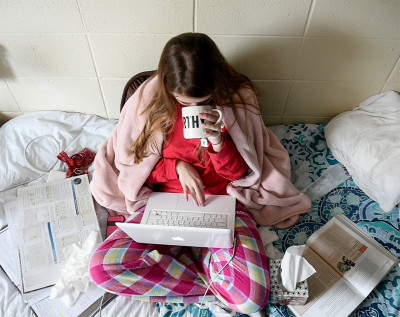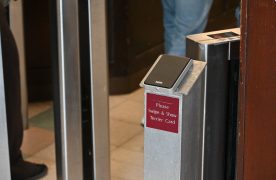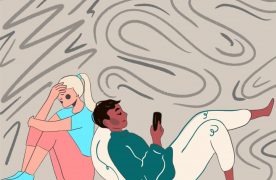
You might want to think twice before touching the office water cooler tomorrow.
According to research conducted by the University of East Anglia in Norwich, England, many workers with illnesses often still choose to go to work for reasons including job security, job stress and a high demand of jobs. The research analyzed data from 61 previous studies from 34 different countries.
The growing phenomenon of individuals attending work while they are sick is known as “presenteeism.” The study found that presenteeism offers both positive effects such as increased motivation and a strong sense of commitment to the job in addition to negative effects such as decreased productivity and poor performance.
Presenteeism affects many individuals, especially university students. Several Boston University students said that when they wake up in the morning and discover that their sniffles became unbearable nasal congestions and their cough became a nasty sore throat, they contemplate whether or not they should actually attend class.
“If it was a serious struggle getting out of bed or if I was throwing up, I wouldn’t go,” said Joe Damico, a freshman in the College of Arts and Sciences.
However, many students said they feel an immense amount of pressure to attend class or work while they’re ill in order to ensure that they stay on top of their schoolwork or to guarantee a sustainable paycheck.
Nate Bellerose, a sophomore in the Questrom School of Business, said he believes going to work or school while sick may hinder his productivity, yet he still feels obligated to attend regardless of his state of health.
Roxanne Segina, a freshman in CAS, agreed with Bellerose’s sense of obligation.
“I feel as though I have responsibilities to the company to show up and I also don’t want to lose part of my work study,” she said. “ … Being a student in an office full of adults is also sometimes stressful because I am the youngest person there and I don’t want to cop out of my job.”
Although students feel personally obligated to attend class while they’re ill, many said they would prefer for their peers to not do the same.
“If [someone] is visibly flu-like, I’d obviously be uncomfortable,” said Megan Phillips, a junior in CAS.
Bridget McAdams, a freshman in CAS, expanded on Phillips’ sentiments from a more personal perspective.
“If I was to the point where I was disrupting class when I was sick or if I knew I was contagious,” McAdams said, “I wouldn’t go because you are putting other students at risk and you’re interfering with others’ education.”
That being said, many students said they believe that overall productivity would be at high risk if their classmates or coworkers run the risk of disrupting the learning or work environment because of their illness. Some even said they felt that this standard should apply to professors as well.
“It reinforces the idea that, ‘You need to be here because I’m here,’” said Kirby Page, a freshman in CAS. “ … It’s still trying to enforce this idea of attendance … but at what cost?”
Productivity, in and of itself, is a major issue that students reported struggling with when determining which is more important to them — health or work.
“It’s not beneficial because [sick employees] are not working to the best of their ability and they’re slowing [productivity] down,” Bellerose said. “ … If they’re a critical member of their team, then they need to be there.”
Damico shared his opinion that the prevalence of presenteeism shows that people nowadays often value work over their personal well-being.
“[Our culture] has changed over time,” he said. “If people had the flu 50 years ago, they probably wouldn’t show up to work. But now, there’s just so much pressure.”
Ultimately, the study shed light on a universal issue that people of all ages and backgrounds struggle with on a daily basis.
“We live in a high pressure society, especially in the U.S.,” Phillips said. “Our priorities aren’t health … I think it’s extremely problematic.”














